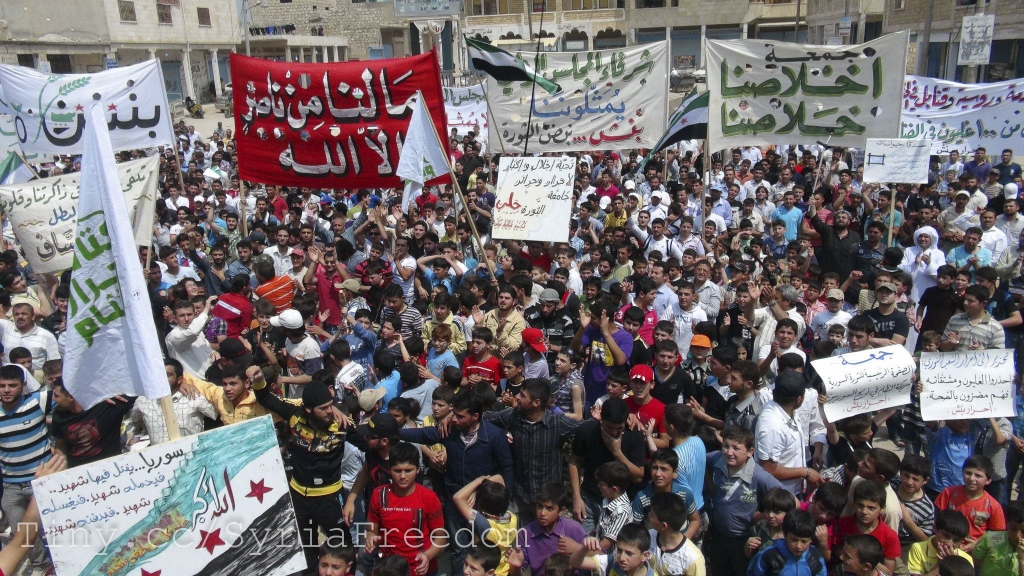The documentary has always been the global community’s preferred medium of political exposé. Even devotees to the masterworks of journalistic critique — the written accounts of human suffering and strife penned by the likes of Norman Mailer, Hunter S. Thompson and George Orwell — cannot deny the power of visual documentation. Rather than described, the subject is shown. The documentary offers a glimpse into lives that are otherwise inaccessible. As the Syrian civil war draws to a bitter end and Assad prepares to resume his control of all state media, the glimpses offered by Syrian documentaries might be the only insight into the country we can expect for the foreseeable future.
One recent Syrian-made documentary has drawn this bleak probability into the spotlight. Still Recording is a documentary made by Syrian filmmakers Ghiath Ayoub and Saeed al-Batal. Created from over 500 hours of footage shot over four years, Still Recording is an unflinching insight into the lives of the civilians struggling to live in a state of unceasing war, impoverishment, and grief. Al-Batal explained the purpose of this project to reporters at the Venice Film Festival: “We started doing this because there wasn’t, and still isn’t, an efficient working media in Syria because it’s not allowed to enter and if it is, it’s under the control of the regime.” The documentary was a last-ditch effort to get a shred of uncensored critical journalism out of the country while it is still possible.
If this seems like an overstatement, or an overestimation of Assad’s ability to control the media and exported journalism of a country he is only just about to reclaim, it’s because it is commonly assumed that the regime’s censorship expertise hasn’t changed much in the past seven years. Journalists in Syria can attest that the stark opposite is true: the Syrian government has made leaps and bounds in its technical ability to monitor and influence reporting, taught by the de facto leader in the field: Russia. Al-Batal remarked during the festival that the Russian expertise afforded to the Assad regime was never just confined to military aid: “there is a media army behind them…they know where to hit, and how to hit hard.” It was only back in April that the Russian government was caught in a massive campaign to spread misinformation on behalf of the Assad regime about a suspected gas attack in Douma — compelling evidence for the validity of al-Batal’s claims. Russia’s record on this subject is hardly novel, but the possibility that Assad’s regime has upgraded its social-media surveillance and control capabilities with help from the Russian government is critically under-discussed, fraught with implications for the future of journalism in Syria.
This is not to say that Still Recording will be the last of its kind. Documentaries exposing brutal totalitarian regimes have always found ways to make it to a broader audience: consider Chile: Hasta Cuando (1986), which took on the Pinochet dictatorship, or even recently produced Dear Pyongyang (2015), which openly challenged the Kim dynasty. Government censorship primarily changes the venues where these works can be shown: domestic cinemas are for obvious reasons out of the question. One can hardly imagine a viewing of Still Recording being played at a local Damascus movie theatre. The typically preferred fora for airing and discussing projects like these are international film festivals, which was why Still Recording was aired at the Venice Film Festival, and why it will probably be airing for the next few months in all venues that aren’t Syria. Perhaps the largest implication of this practice is that no native Syrians will ever see Still Recording: the only people talking about the issues raised by the documentary will be the types that attend the Venice Film Festival, whose praise for the film and bestowment of two awards might give the work weight in the realm of art-politics, but will probably amount to very little in that of policy-politics. Chile: Hasta Cuando and Dear Pyongyang are two examples of this disconnect: both films received coveted awards at Sundance, Venice, and elsewhere (Chile most notably received a 1986 Oscar nomination for best documentary), but it’s hard to say that either of these works had a tangible effect on the concrete policies of the dictatorships they were exposing.
However, projects like Still Recording have huge effects on global awareness. Whilst this may seem like an abstract ideal, or a consolation prize for not single-handedly initiating a regime change, we should recall that the Syrian government’s ownership of all domestic news and social-media production muddies the water of what actual “awareness” of the Syrian civil war is. Even if Still Recording does not lead to the immediate ouster of Bashar al-Assad, it is contributing to the global community’s clearer, uninfluenced picture of the struggle. As tensions rise around the city of Idlib — the last rebel bastion in Syria — and government forces await the green light for the final siege of the war to begin, we should all take a moment to consider how each of us intends to follow the fallout in the coming months and years. Still Recording is a strong argument for us to lend our ears to the on-the-ground, local Syrian journalists documenting the struggle. Our awareness of the conflict should be informed by Ghiath Ayoub, Saeed al-Batal and their colleagues; not by Bashar and his.
Photo: “جمعة اخلاصنا خلاصنا – إدلب / Demonstrations in Idlib, Syria.”
